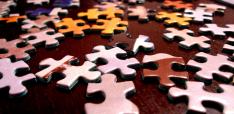Enough About The Bottom Billion; What About The Top 400?
Normal
0
false
false
false
EN-US
X-NONE
X-NONE
/* Style Definitions */
table.MsoNormalTable
{mso-style-name:"Table Normal";
mso-tstyle-rowband-size:0;
mso-tstyle-colband-size:0;
mso-style-noshow:yes;
mso-style-priority:99;
mso-style-parent:"";
mso-padding-alt:0in 5.4pt 0in 5.4pt;
mso-para-margin-top:0in;
mso-para-margin-right:0in;
mso-para-margin-bottom:10.0pt;
mso-para-margin-left:0in;
line-height:115%;
mso-pagination:widow-orphan;
font-size:11.0pt;
font-family:"Calibri","sans-serif";
mso-ascii-font-family:Calibri;
mso-ascii-theme-font:minor-latin;
mso-hansi-font-family:Calibri;
mso-hansi-theme-font:minor-latin;}
The Forbes 400 is a powerful thing. It is an annual list of the wealthiest Americans by net worth and carries in American culture far more weight than the Sunday Times Rich List carries in the U.K. It conveys messages that are important, but rarely discussed in America: that much wealth is inherited rather than earned in the present generation, that vast personal wealth is generated in certain industries more often than in others, and that the great American fortunes earned in the Twentieth Century generally have been squandered or depleted with staggering speed, regardless of their size.
But the Forbes 400, or something like it, could play a role globally: an important role with ties to governance, accountability, and perhaps even foreign policy itself. I propose that a global "400" list of the wealthiest individuals by net worth would be of great importance and, in this blog post, volunteer to help Forbes or someone else work on a ranking of this sort.
The bits of the list most people pay attention to – the bits I’ve paid attention to since I was a boy flipping through my parents' copy of Forbes – are the person in question’s name, age, place of residence, and source of wealth. Even these basic four pieces of information would be a revolutionary thing to publish in most of the world.
Consider source of wealth as a category. On the current list, there is not a single person where, beneath “source,” terms directly tied to government appear (of course it is worth noting that many on the list have benefited from government actions including the enforcement of patent rights, the grant of subsidies, increased defense spending, or other programmes) – yet, on a world list, sources of wealth very closely tied to government would be prominent and frequent sources of personal wealth. Most billionaires in China, for instance, have achieved their great wealth through opaque (by Western standards) government joint venture companies. Many situations where state funds or property have been converted to private use are of disputed social value; what some call "theft" others might call rewarding a great leader or a loyal party politician.
The list I imagine would simply attempt to estimate the amount of wealth controlled by certain individuals; it would not judge whether wealth had been "rightly" obtained, this would be left to readers and future researchers to interpret (or leave alone).
Some in the developed world may sneer at the mention of corruption, not realising its scale. Last month, the Guardian brought attention to a report that Mugabe and his friends had stolen at least two billion dollars of diamonds from the Marange fields (since the Guardian story, the number seems to be revised consistently upward…). Supposing Mugabe received half of that, this one theft alone would land him around the bottom of the Forbes 400 list. But Mugabe has been in office for twenty-five years; most are confident he has enough money that an additional billion dollars has a negligible impact on his day-to-day life.
Consider, too, the place of residence. Many of us who have lived or worked in Africa know how interesting this tidbit of information can be. For instance, I find it interesting how many who’ve made millions in the young country of South Sudan actually do not live in their country, but choose instead to reside in palace-like residences in Nairobi, Kenya (or to keep dramatic homes in London in addition). The number of elites in the developing world who reside primarily (and very quietly) in posh hotels or aboard acquaintances’ yachts is another interesting subculture to be explored. And some interesting datasets have become available in recent years - for instance, why do so many private jets with trans-continental range visit parts of the developing world that are clearly not holiday destinations (the flight plans and destinations for these jets, listed by tail number, are available in public databases).
While the Forbes 400’s members primarily derive their wealth from family entrepreneurship or their own business savvy, the wealthy of the developing world are cut from a different cloth. And their lives reflect that. When the playing field is less level, different types of skills, connections, and craftiness are rewarded.
The wealthiest people in the developing world are often nearly-insolvent by any conventional measure, but control holding companies (or, more often, less formal structures) worth billions. Some are flashy with their wealth, imitating the grand courts and parades of times nearly-forgotten (Qaboos bin Said al Said comes to mind), while others are so secretive that no known photographs exist. Some, like the Sultan, travel in style (he owns no fewer than five superyachts, the largest being two-thirds the length of the aircraft carrier HMS Ark Royal). Others prefer to fly on charters booked by company secretaries, never revealing anything more than the flash of a passport.
The number of unaccounted-for people worth at least one hundred million dollars is interesting to contemplate. And very hard to estimate.
I'll admit tracking down every last person worth $100 million is difficult. So let’s do what Forbes does: concentrate on the top 400. Who are the top 400? Some are well-known, but most are not. Some live lavishly, but most do not.
It's interesting to contemplate what it says about our society and the systems we've put in place (economic, governmental, audit, intelligence, and so forth) if 100 of the world's 400 wealthiest people have obtained their wealth in unconventional ways. Perhaps it's 200 out of 400. Sure, a few may be leaders of drug cartels, but the most interesting people may be those who have an unexplained net worth of five billion or so. From some cursory research for past articles on a variety of topics, I'd estimate the number is between 100 and 150 - the remaining 300 or 250 names would look very much like the Forbes 400 - wealth earned in the open.
The prevailing story about extremely wealthy people is one of hard work, merit, invention, and luck. But the story surely has layers of storyline beneath that one. It is obvious that the wealthiest person in Sudan or Sri Lanka did not amass billions through an environmentally-friendly company that sells hugs over the Internet. The truth is that the Forbes 400 illustrates how different America is - the sources of wealth listed on the Forbes 400 list are not the sources of wealth in most of the world. In most of the world, wealth creation is far more closely associated with physical control of resources - this is one of the reasons (as Scott, Collier, Easterly, and others have pointed out) that wealth creation in the developing world is inexcorably intertwined with control of government and, in particular, military power.
I recently authored a chapter on the piracy in Somalia for a forthcoming academic text – the estimates of one pirate cartel leader’s wealth range from $250 million to $2.5 billion (his primary residence seems to be either his flat in southeast London, his seaside compound north of Mareeg, or a home near Avenida do Nordeste in Macau). Eventually, the details on this individual became so ludicrous and inconsistent that I chose not to mention him at all. From a quick Google, it appears most members of the press have been similarly discouraged. His fortune is not atypical. It is difficult to estimate the fortunes of many of the people on the global 400 list because the links between the individual and the assets controlled are so tenous or exotic. Often, a person controls wealth through family ties, through marriage, through threat of violence, or through social capital unique to one cultural or geographic context.
To understand the scale of unconventional wealth (I use this rather than "criminal wealth" because it is as yet unclear whether crimes have been committed by HSBC's customers and what the nature of those crimes might be), one need look no further than the recent reports on HSBC's controversial dealings. A single cartel in Mexico controlled by two men may have laundered more than $9 billion through HSBC over the past several years. A handful of Iranian businessmen allegedly were involved in laundering about $20 billion through HSBC during the same time; since it’s unlikely the spoils were split evenly at two billion dollars each, at least one or two of them might make the cut for the 400 list. The $290 million in sequentially-numbered travelers’ cheques presented at HSBC (half a million dollars at a time, according to the report) likely are part of someone’s fortune, but perhaps not one large enough to make the worldwide list.
The image of corruption, embezzlement, and graft as a small and distributed issue is false and unhelpful. The truth of the matter is that corruption, illicit enterprises, money laundering, and theft from the public treasury are not only pervasive, but enrich a small group of people dramatically. So dramatically that a fair number of them would earn (if earn can be used in this context) spaces on the global 400 list. Yet little time and money is spent even contemplating who these people might be, let alone learning anything meaningful about them. And this money is not created in a vacuum - the fortunes created by drug dealers and militia leaders are re-invested in the businesses with which they are familiar, often with disastrous effects upon the social, industrial, and political futures of their home countries.
I wonder whether the lack of a Forbes 400-like list for the world has less to do with the difficulty of compiling it and more to do with our fear of what it might contain. If there is no link between the estimated 2.5 trillion dollars "missing" (a number occasionally used by INTERPOL as a rough estimate) from the world's visible economy (much of which comes from illicit businesses) and any of the 400 wealthiest people on earth, I would be very surprised. I suspect the Gini coefficient of that "missing income" section is very high indeed.


